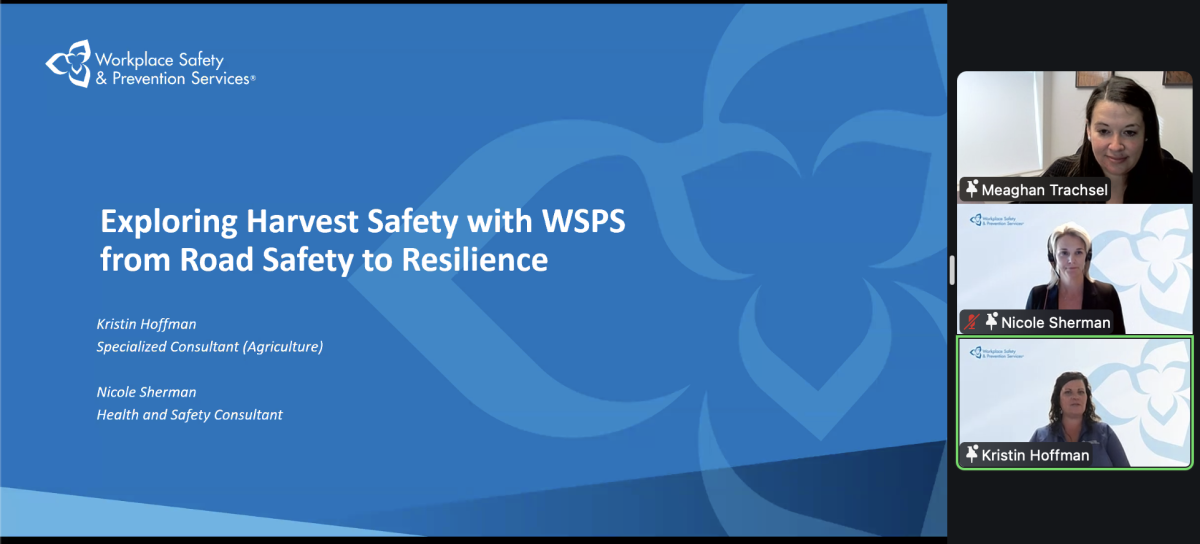A review of regulations affecting Canadian farming and an AgriFlex fund to regionalize farm business risk management are among the recommendations of the federal Liberals’ Opportunities in Agriculture task force.
The task force, headed by Liberal ag critic Wayne Easter and a Quebec candidate, Cindy Duncan MacMillan, released its report Thursday after rolling out some of its preliminary recommendations for the livestock sector last month.
Those recommendations had included a crisis recovery strategy, development of a production insurance program for livestock producers, and immediate aid through advance payments and CAIS interim advance payments.
Read Also

Exploring Harvest Safety
Kristin Hoffman of WSPS explains measures for increased farm safety around harvest season
They also include a trade directorate and a quick response team to deal with potential trade challenges to Canada’s livestock industries, and call for an end to supplementary imports of foreign beef beyond Canada’s existing trade commitments.
Despite being some of the most efficient producers in the world, Canadian farmers still can’t make ends meet, the party said in a release. The task force report shows the party “understands farmers and, whether in opposition or government, will work hard to fight for them,” Easter said.
Among the report’s other recommendations are:
- a farm regulatory review
panel “to examine closely the multitude of regulations
affecting the industry, eliminate unnecessary impediments, and integrate and smooth costs where
possible;” - an idea previously proposed by the Canadian Federation of Agriculture for a new “AgriFlex”
fund to back new regional/provincial business risk management (BRM) and non-BRM programs that address regional
needs within overarching national objectives, and are cost-shared federally and provincially, as well as flexibility within existing BRM and non-BRM programs (such as food safety or green initiatives) for regional administration and delivery of funds; - added investment in the Canadian Food Inspection Agency and in border enforcement, plus new inspection fees for imported product, to be charged on a cost-recovery basis;
- a national Environmental Goods and Services (EGandS) program, rewarding environmental
stewardship and farmer contributions to the public good, such as carbon sequestration projects or setting aside land for habitat; - a Grown in Canada initiative and marketing fund, plus new regulations to clarify the meaning of “Made in Canada,” “Product of Canada” and, later, “Grown in Canada” on product labels;
- a new Young and Beginning Farmer Loan program, through extension of the
existing Farm Improvement and Marketing Co-operative Loan Act; - a renewed drive for the Liberals to open international markets in non-sensitive products, press for “significant, real reductions” in exporting countries’ trade-distorting support and defend Canadian farmers’ interests in existing trade agreements;
- continued firm commitment to the pillars of supply management (production discipline, import controls and producer pricing);
- a full review of western rail transportation issues to improve competition,
service levels and the western grain freight revenue cap; and - urging the government to hold a free, fair and clearly worded plebiscite on the single-desk barley and wheat marketing powers of the
Canadian Wheat Board, and to boost farmers’ control of the Canadian Wheat Board by way of boosting the farmer:government appointee ratio on the board of directors and strengthening current rules on farmer consultation before changing the CWB’s marketing jurisdiction.















